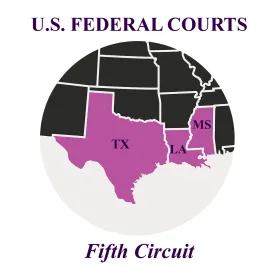The U.S. Supreme Court’s landmark 2020 decision granting anti-discrimination protections for LGBTQ+ workers left room for future challenges by religious employers.
The U.S. Court of Appeals for the Fifth Circuit Court has now attempted to fill what it considers to be gaps left by the Supreme Court in Bostock v. Clayton County, Ga. with a ruling on June 20 that carves out an exemption to Bostock for religious and faith-based employers. In the case titled Braidwood Mgmt., Inc. v. EEOC, the Fifth Circuit held that Braidwood Management Inc. (“Braidwood”), a faith-based for-profit management company, cannot be sued by the EEOC over its policy prohibiting employees from engaging in homosexual or gender non-conforming conduct.
Under Bostock, such conduct by an employer is prohibited. More specifically, in Bostock, the Supreme Court held that Title VII of the Civil Rights Act of 1964 prohibits employment discrimination based on an employee’s sexual orientation and/or transgendered status. Though Title VII does not expressly mention “sexual orientation” or “transgender,” the Supreme Court held that “homosexuality and transgender status are inextricably bound up with sex” and that “it is impossible to discriminate against a person for being homosexual or transgender without discriminating against that individual based on sex.” Acknowledging concerns over the intersection of Title VII and “religious liberties,” the Supreme Court in Bostock did note other avenues for religious employers to seek redress, including the Religious Freedom Restoration Act of 1993 (“RFRA”).
Subsequently, the U.S. Equal Employment Opportunity Commission (“EEOC”) issued guidance on the scope of the Bostock decision. Notably, the agency did not carve out a specific exemption for religious employers, however, the EEOC has, historically, not enforced Title VII’s prohibitions against religious employers.[1]
Still, Braidwood and Bear Creek Bible Church, a nondenominational church that also brought the case, claim that Title VII as interpreted by Bostock and the EEOC guidance violate their religious liberty by preventing them from operating in accordance with their Christian beliefs. The Fifth Circuit agreed, holding that the EEOC’s failure to provide the plaintiffs an exemption from Bostock violates the RFRA. The RFRA provides that the federal government “shall not substantially burden a person’s exercise of religion” unless the burden furthers a “compelling governmental interest” and is “the least restrictive means of furthering” that interest.
On the burden question, the Fifth Circuit concluded that “[b]eing forced to employ someone to represent the company who behaves in a manner directly violative of the company’s convictions is a substantial burden and inhibits the practice of [the plaintiffs’] beliefs.” On the government’s interest, the Fifth Circuit concluded that, “[a]lthough the Supreme Court may someday determine that preventing commercial businesses from discriminating on factors specific to sexual orientation or gender identity is such a compelling government interest that it overrides religious liberty in all cases, it has never so far held that.”
The Fifth Circuit did reverse the lower court’s ruling granting class action certification, which would have otherwise applied the holding to a broad group of for-profit businesses. It remains to be seen whether other circuit courts will follow the Fifth Circuit’s lead and carve out a religious exemption to Title VII for religious employers or if the Supreme Court will ultimately weigh in on the issue.
FOOTNOTES
[1] The EEOC had argued that because it had not initiated any enforcement action against the plaintiffs, there was no legal standing for them to pursue their claims. The Fifth Circuit, however, disagreed finding a “credible threat” that the plaintiffs will face enforcement actions.





 />i
/>i

